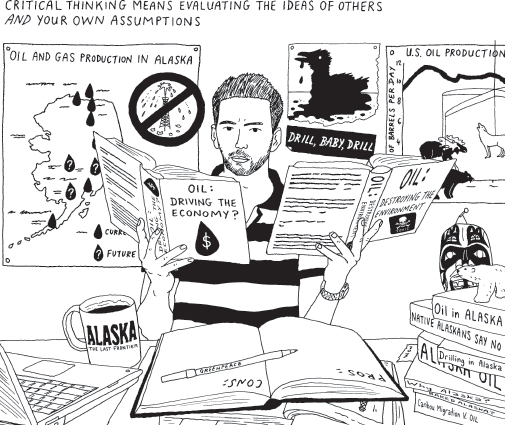Emphasis on Critical Thinking
Printed Page 27
In addition to encouraging greater attention to cultural awareness, scholars of public speaking have begun emphasizing the importance of critical thinking skills for speakers who are preparing presentations. Critical thinking refers to the analysis and evaluation of ideas based on reliability, truth, and accuracy. When you are engaged in critical thinking, you carefully evaluate the evidence and reasoning presented in the message.35 You are also open-minded about your own ideas and assumptions, and subject them to the same analysis that you apply to others’ viewpoints.36

Before you present ideas to an audience, you should feel confident that those ideas are reasonable. Rather than assuming that your beliefs are true, suspend judgment and consider other perspectives. For example, suppose you are interested in speaking about drilling for oil in Alaska. You might research the perspectives of economists, companies that drill for oil, environmentalists, Alaska natives, and others with a stake in the issue. Carefully consider the ideas of each group, and modify your opinions when new ideas make sense.
To use critical thinking, you would also evaluate the probable truth of the claims you plan to make. Anybody can make a claim, but not all claims are based on careful analysis. For example, if you were researching the impact of expanded drilling on gasoline prices, the views of a petroleum economist who has studied the issue are more likely to be accurate than those of an angry author of a letter to the editor in your local newspaper.